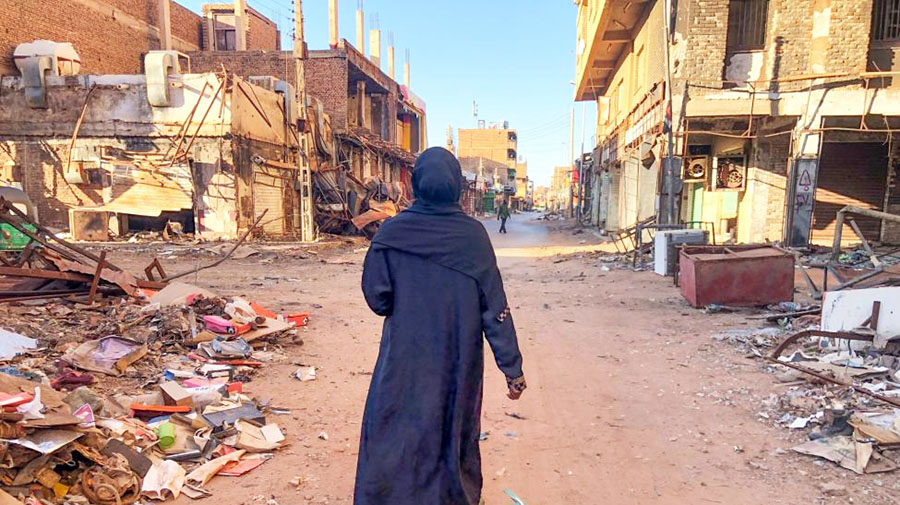
Displacement rates decline in Sudan, but the humanitarian crisis continues
Moatinoon
The International Organization for Migration, a United Nations agency, said the number of internally displaced persons (IDPs) in Sudan decreased by 2.4% over the past three months, marking its first decline since the crisis erupted nearly two years ago.
The organization attributed this decrease primarily to the return of IDPs to their places of origin. However, returnees are returning to areas that have been severely damaged and are severely lacking in shelter, food, infrastructure, education, and other basic services.
A statement issued today by the organization said that 396,738 people have returned to their places of origin in the states of Al-Jazirah, Sennar, and Khartoum since December 2024. The statement added that displacement from North Darfur and White Nile states has increased due to worsening insecurity, and the need for increased humanitarian assistance across Sudan remains extremely high.
“While many people long to return home, the conditions for safe and sustainable return and reintegration are not yet in place,” noted Mohamed Refaat, IOM Sudan Chief of Mission. “Basic services, including healthcare, protection, education, and food, remain limited, and the lack of usable infrastructure and financial capacity will make it difficult for families to rebuild their lives.”
According to the latest update of IOM’s Displacement Tracking Matrix, Sudan currently hosts an estimated 11,301,340 internally displaced persons (IDPs), including pre- and post-conflict IDPs, most of whom are from Khartoum, South, and North Darfur. Nearly four million people have crossed into neighboring countries, the majority to Egypt, South Sudan, and Chad.
Most IDPs live in dire humanitarian conditions and with limited access to basic services. More than half of the displaced are children, 27% of whom are under the age of five. The report reveals that girls under the age of 18 constitute approximately 28% of internally displaced persons.
Rifaat added: "The conflict in Sudan, which has been raging for nearly two years, has caused immense suffering and resulted in the worlds most devastating humanitarian crisis, with more than 30.4 million people—more than half the population—in need of humanitarian assistance, including 16 million children. Recent cuts in international humanitarian aid budgets are exacerbating the crisis and deepening the suffering."

